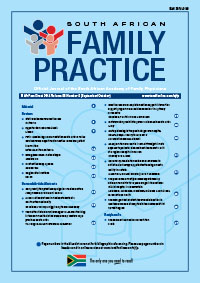Part 1: Medico-legal documentation South African Police Services forms, Department of Justice forms and patient information
Keywords:
forensic medicine, medico-legal, legal documentation, assault, sexual assault, under the influence
Abstract
Medical practitioners share the responsibility of action against crime by supporting the justice system. The best way for a medical practitioner to achieve this is by proper examination of victims and/or perpetrators, and completing the legal documents meticulously. This can be a frightening experience without proper formal training. Paper 1 addresses the role and responsibility of the medical practitioner and issues around consent, general information on the completion of the J88, as well as the perceived gold standard of medical information relayed to the courts. Medico-legal documentation is more than the compilation of a medico-legal report. The clinical notes are part and parcel of the documentation to protect practitioners against negligence and malpractice investigations. Valid medico-legal consent differs from medical consent. Knowledge of legislation pertaining to child pornography and the practical and ethical aspects of photography is also necessary. Inappropriate completion of medico-legal documentation may necessitate the practitioner having to explain the documentation to make it understandable to the court.
Published
2014-12-04
Section
Review Articles
By submitting manuscripts to SAFP, authors of original articles are assigning copyright to the South African Academy of Family Physicians. Copyright of review articles are assigned to the Publisher, Medpharm Publications (Pty) Ltd, unless otherwise specified. Authors may use their own work after publication without written permission, provided they acknowledge the original source. Individuals and academic institutions may freely copy and distribute articles published in SAFP for educational and research purposes without obtaining permission.

